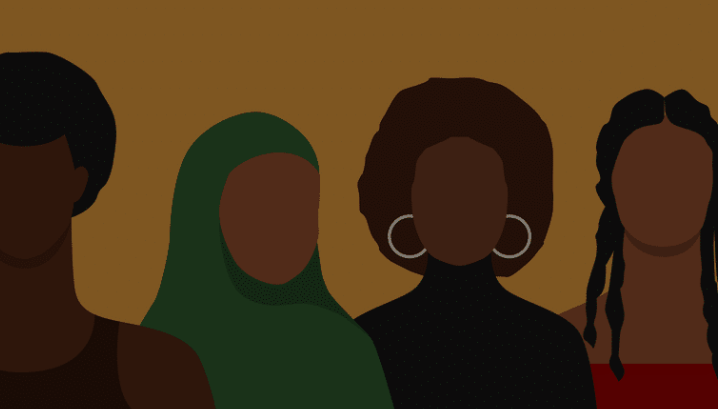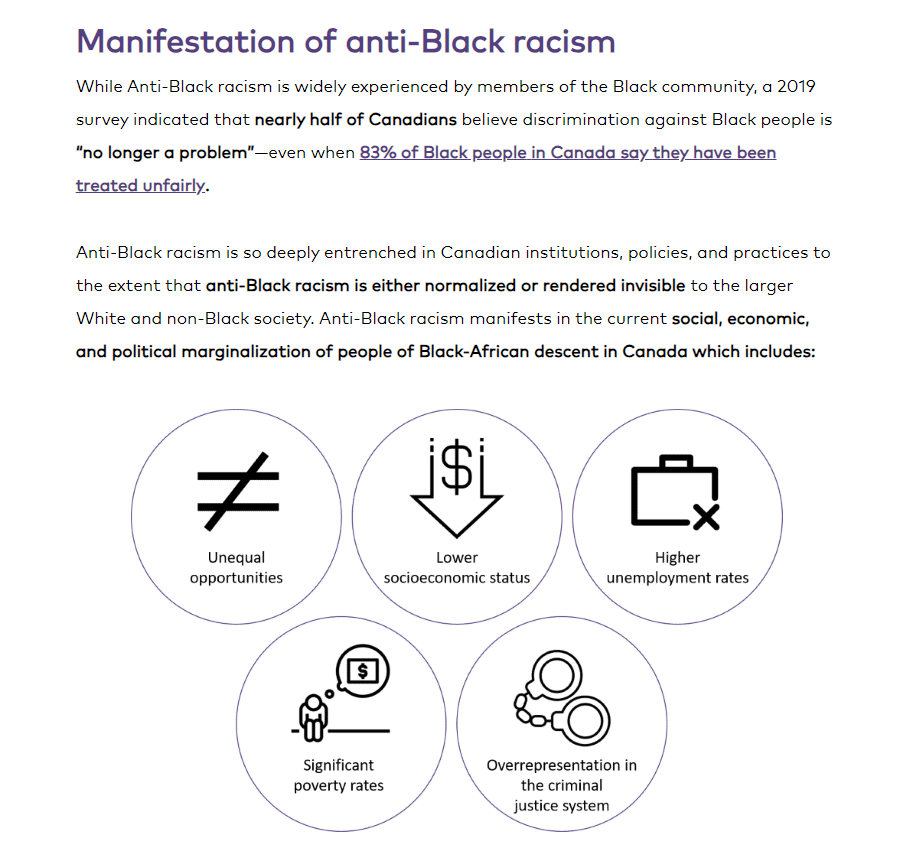
Sign up for the Unity Health Toronto newsletter, a monthly update on the latest news, stories, patient voices and research emailed directly to subscribers. If you haven’t subscribed yet, you can do that by clicking here.
An online training module at Unity Health Toronto is helping staff, physicians and learners recognize and address anti-Black racism in the workplace.
The Introduction to Anti-Black Racism learning module was developed by Women’s College Hospital and Dr. Notisha Massaquoi, an assistant professor in Health Education and Promotion with the Department of Health and Society at the University of Toronto. The module is designed to support health service providers in their learning journey and aims to help them learn about implicit bias, anti-Black racism and how to address it.
The module is shared in partnership with Ontario Health and the Toronto Academic Health Sciences Network (TAHSN), and is in place at most TAHSN hospitals. When it came time for Unity Health to implement the module, the Office of Anti-Racism, Equity and Social Accountability (ARESA) wanted to put their own spin on it.
Working in partnership with the Education Portfolio, the Office of ARESA adjusted the module to include opportunities for reflection, graphics and examples specific to Unity Health employees. Suaad Ali, Digital Education Specialist, Learning Experience at Unity Health was an important part of the design process.

“The visual design of the module was a key priority. It was important for me to ensure all images and illustrations were diverse and inclusive,” said Ali, adding it includes images of Black people with different skin tones, faiths, ages, and those who are differently abled.
“Using visuals that accurately reflect the diversity of Black people avoids reinforcing stereotypes and fosters a more authentic learning experience.”
It was important that participants be able to reflect on the learnings throughout the module. Broken into sections, participants are taught the definition of anti-Black racism, why the issue is so important, the history and types of anti-Black racism in Black people’s lives, and addressing it in the workplace. “Including interactive elements in eLearning has various benefits. For example, when learners actively participate in the learning process through interactive elements such as quizzes, they are more likely to stay focused and retain information” Ali explained.
“Incorporating multimedia elements such as videos and infographics not only enhance the digestibility of the information presented but also provides a welcome break from text-heavy content. This makes it easier for learners to grasp key concepts and results in a more engaging and effective learning experience.”
The module launched in April 2023 and is open to all Unity Health staff, physicians, learners and volunteers. Initial feedback has been positive.
Supportive staff, physicians, and leaders have been instrumental to increasing uptake. Zizi Putra, Clinic Coordinator at St. Michael’s Research, Equity and Advocacy in Child Health School Network (REACH), encouraged his team to take the module after he was looking to deepen his understanding of the nuanced experiences within the Black community, particularly in the context of racism.
“The module opened my eyes to certain struggles faced by the Black community that I wasn’t previously aware of,” said Putra. “I think it’s critical that staff complete it, to be able to better support our Black colleagues and patients. We need to be able to see different perspectives and this course does that.”
Dr. Thomas Parker, Executive Vice President, Clinical and Chief Medical Officer has mandated the module for all Unity Health physicians, emphasizing the importance of this information to be integrated into practice across the network. Dr. Parker says “the Anti-Black racism module is a foundational step for all staff and physicians at Unity Health to drive our culture and inclusivity. We are pleased that completing the module is a required component of re-credentialing for our over 1,500 physicians this year.”
The module presents situations where the participant must recognize the type of racism. This helps employees identify situations they have come across or things to look out for in the future. Reducing the impact at all three levels – structural, institutional and individual is essential to Unity Health’s commitment to an equitable workplace.
“Education is critical because anti-racism work begins with the self. It begins by grappling with one’s own beliefs, mindsets, philosophies and biases,” said Beverly Bulmer, Vice President of Education at Unity Health.
“We have to know how to identify racism; how racism is carried out and built in systems and structures; how people hold, sustain, maintain and perpetuate racism. Education holds space for truth telling, personal reflection and commitments to action.” Based on the themes identified from the report on the experiences of Black staff during Unity Health’s foundational work in the summer of 2020 towards dismantling anti-Black racism, the Office of ARESA at Unity Health has been working with several departments to address key areas of opportunity.
Unity Health’s anti-Black racism work has also included the creation of a Black Staff Affinity Group. The aim of this group is to foster an environment able to create a safer, more supportive space for Black staff. The opportunity to celebrate each other and take action on issues in the workplace is a key focus. Healing circle sessions in partnership with the Black Affinity group began in 2023, an opportunity where we can improve the experiences of Black staff, physicians, learners, and volunteers through wellness supports, and healing circles have been identified as a way of creating intentional space to heal from racial trauma.
Unity Health understands that training and workshops are not a singular solution to the many barriers to Black staff. Education itself is not enough to create systemic change. The report which was completed in November 2023 will allow for the organization to continue updating the ways we progress in our work to be transparent and accountable as we make these changes. The findings from this report continue to impact clinical spaces in positive ways as we dismantle previous actions which proved harmful to Black staff at Unity Health.
This continued work, and the implementation of the Introduction to Anti-Black Racism learning module, are part of the important work to create equity for all at Unity Health. The module is an introduction to understanding anti-Black racism and is only the beginning of this learning journey. Addressing anti-Black racism in the workplace and in patient care requires commitment and action from us all.
By Caitie Lehman


